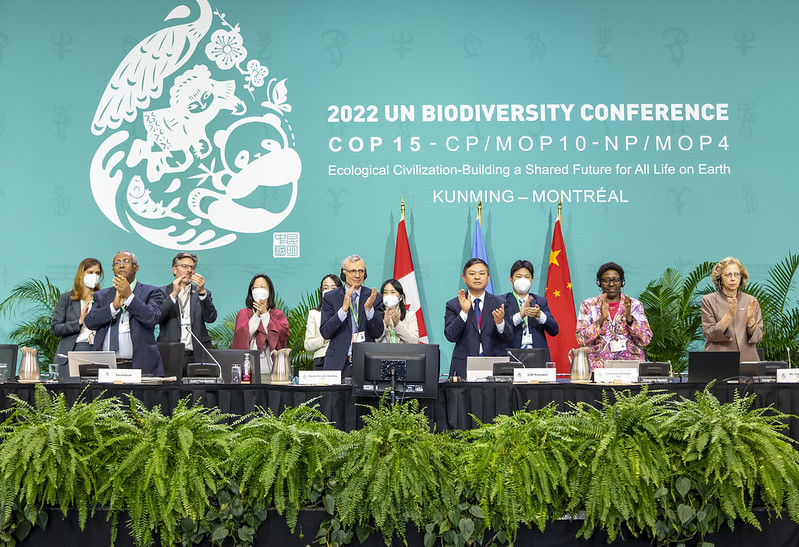11 Dec 2024

Tired Earth
By The Editorial Board

Representatives from 188 governments have been gathered in Montreal for the past two weeks for the important summit.
Chaired by China and hosted by Canada, COP 15 resulted in the adoption of the Kunming-Montreal Global Biodiversity Framework (GBF) on the last day of negotiations. The GBF aims to address biodiversity loss, restore ecosystems and protect indigenous rights. The plan includes concrete measures to halt and reverse nature loss, including putting 30 per cent of the planet and 30 per cent of degraded ecosystems under protection by 2030. It also contains proposals to increase finance to developing countries – a major sticking point during talks.
The stakes could not be higher: the planet is experiencing a dangerous decline in nature as a result of human activity. It is experiencing its largest loss of life since the dinosaurs. One million plant and animal species are now threatened with extinction, many within decades.
The Global Biodiversity Framework

The GBF consists of four overarching global goals to protect nature, including: halting human-induced extinction of threatened species and reducing the rate of extinction of all species tenfold by 2050; sustainable use and management of biodiversity to ensure that nature’s contributions to people are valued, maintained and enhanced; fair sharing of the benefits from the utilization of genetic resources, and digital sequence information on genetic resources; and that adequate means of implementing the GBF be accessible to all Parties, particularly Least Developed Countries and Small Island Developing States.
United Nations Environment Program (UNEP) Executive Director, Inger Andersen, emphasized that implementation is now key: “Success will be measured by our rapid and consistent progress in implementing what we have agreed to. The entire UN system is geared to support its implementation so we can truly make peace with nature.”
The GBF also features 23 targets to achieve by 2030, including:
Finance at the core
Finance played a key role at COP15, with discussions centring on how much money developed countries will send to developing countries to address biodiversity loss. It was requested that the Global Environment Facility set up a Special Trust Fund – the GBF Fund – to support the implementation of the GBF, in order to ensure an adequate, predictable and timely flow of funds.
Countries also approved a series of related agreements to implement the GBF, including on planning, monitoring, reporting and review, which are all vital to ensure progress is made – in the words of the GBF, to ensure that there is not “a further acceleration in the global rate of species extinction, which is already at least tens to hundreds of times higher than it has averaged over the past 10 million years.”
See the following links for more information on biodiversity:
*Figure taken from Protected Planet
About COP15
Healthy, biodiverse ecosystems sustain life on Earth. Despite the value nature provides, it is deteriorating worldwide – a decline projected to worsen under business-as-usual scenarios. From December 7-19, the world will gather for the UN Biodiversity Conference (COP15) in Montreal to strike a landmark agreement to guide global actions on biodiversity through 2030. The framework will need to lay out an ambitious plan that implements broad-based action across sectors addressing the key drivers of nature loss and ensure that by 2050, the shared vision of living in harmony with nature is fulfilled.
Source : unep.org
Comment